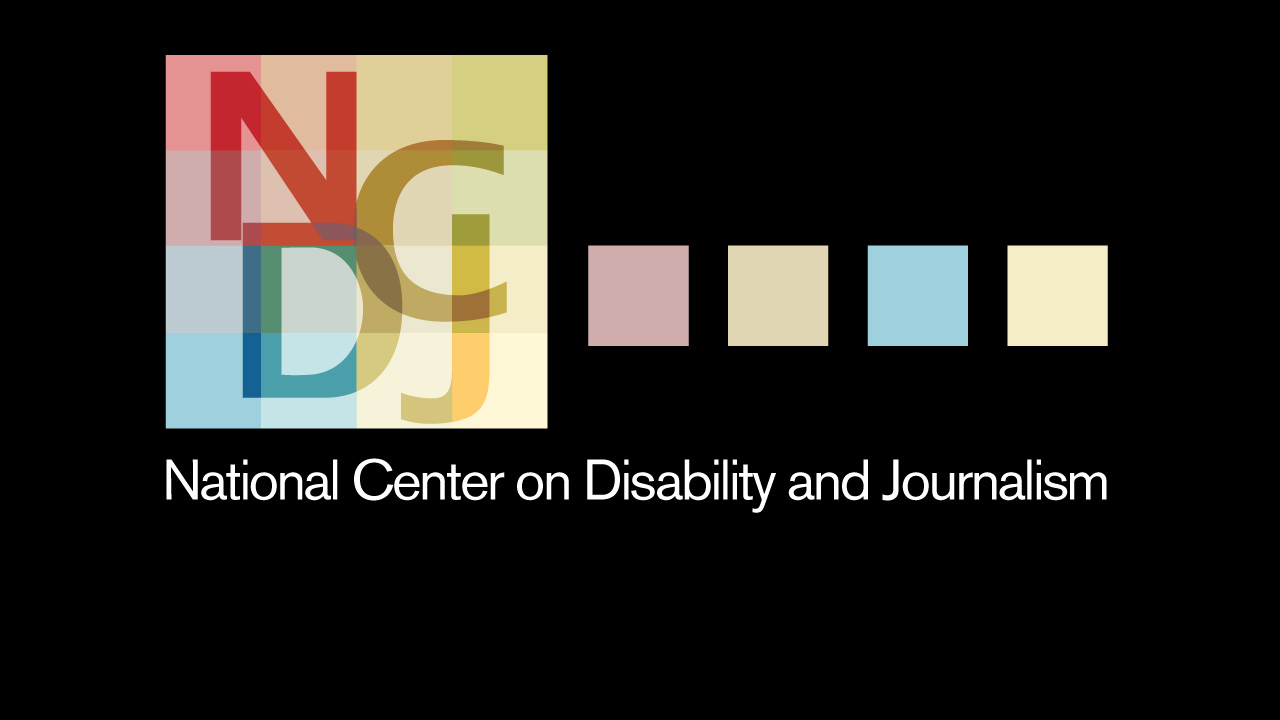The National Center for Disability Journalism (NCDJ) today announced the winners of the 2023 Katherine Schneider Journalism Award and the Gary Corcoran Student Award for Excellence in Disability Reporting.
The Schneider and Corcoran Prizes are the only national professional and student journalism competitions dedicated to reporting on disabilities and disability issues.
The Schneider Award for Best in Large Media went to Capitol News Illinois’ Beth Handsdorfer and Lee Enterprises Midwest’s Molly Parker for their investigative series “Culture of Cruelty,” produced as part of ProPublica’s local reporting network. Their work exposed abuse, neglect and misconduct in Illinois state facilities that are supposed to care for the mentally and developmentally disabled.
The second place winner in the Large Media category was Amanda Morris, a former reporter for The New York Times, who provided a fresh analysis of how video technology and social media have changed American Sign Language. Now a reporter for the Washington Post with disabilities, Morris grew up with deaf parents and learned American Sign Language (ASL) at home with hearing aids. She conducted many of her interviews in sign language.
Coming in third in the Large Media category was Kristin Herman’s “Side Effects Public Media.” The audio-and-text production examines the barriers families face in finding appropriate mental health care for their children and teens. The piece was co-published by the Center for Public Integrity as part of a collaboration with the Carter Center and newsrooms across the country to strengthen coverage of mental health care.
The judges awarded an Honorable Mention to Delhi-based independent journalist Romita Sarja for her article about the prevalence of pelvic organ prolapse in rural India, where stigma and patriarchal attitudes make it extremely difficult to access treatment.
In the Schneider Prize small media category, the Austin American-Statesman’s Caroline Ghisolfi, Tony Plohetski and Nicole Foy won the top prize for “Disabled and the Abandoned,” a paper that examines Texas’ disability care system as it faces crisis and violence. Like other winners of the NCDJ competition, the Statesman took steps to ensure its reporting was accessible to people with disabilities: it made its graphics understandable to color-blind readers, included closed captions for its videos and included listening options for its articles.
Illustrator John Greiner won second place in the Small Media category for his comic book series, “Tales to Demystify: Not Welcome Here.” Published by Signal Cleveland, the series focuses on accessible housing in Cleveland, Ohio, and explores how to make housing accessible for people who use wheelchairs or walkers.
Coming in third in the category was “Rights and Wrongs,” by Jennifer Dixon of the Detroit Free Press, which revealed how Michigan psychiatric hospitals and community mental health agencies are allowed to investigate complaints of rights violations.
The Corcoran Prize recognizes student journalists who report on disability issues. This year’s top prize went to Megan Gilmore, a graduate student at Carleton University in Ottawa. Her winning story, published in the Toronto-based newspaper The Walrus, covered disability criticism of Canada’s euthanasia laws.
Second place went to Julia Metraux, whose piece grew out of a class she took on climate change at the University of California, Berkeley Graduate School of Journalism. Published in the Richmond Pulse, the piece examines the impacts of climate change on people with lupus.
The third place winners were Erin Gretzinger, Christy Klein and Erin McGroarty from the University of Wisconsin-Madison, whose article explores Wisconsin’s past, present and future efforts and challenges to support people with disabilities.
The 2023 NCDJ competition received nearly 200 applications from around the world, including from journalists in Brazil, Uganda and Pakistan.
“This initiative is a wonderful testament to the growing global effort to prioritize and improve disability coverage,” said Pauline Arrillaga, executive director of the National Center on Disability and Journalism and editor-in-chief of Carnegie Knight News 21 at Arizona State University’s Walter Cronkite School of Journalism and Mass Communication.
This year’s judges included author, athlete and documentary filmmaker Katherine Bertine; Christine Gilger, former executive director of the NCDJ and professor emeritus at the Cronkite School; Jennifer LaFleur, assistant professor of data journalism at the University of California, Berkeley; Sarah Luterman, care reporter at The 19th; Jonathan Poet, deputy health and science editor at The Associated Press; Sada Reed, assistant professor at the Cronkite School; and Karina Sturm, a German multimedia journalist and filmmaker.
Winners will be invited to discuss their work during a First Amendment Forum ceremony at the Cronkite School in downtown Phoenix on Nov. 9. The event is open to the public and will also be livestreamed.
About the National Center for Disability Journalism (NCDJ)
The Schneider and Corcoran Awards are administered by the NCDJ, part of the Walter Cronkite School of Journalism and Mass Communications at Arizona State University. NCDJ provides resources and materials for journalists covering disability issues and topics, including a widely used disability language stylebook. For more information, visit their website here.

